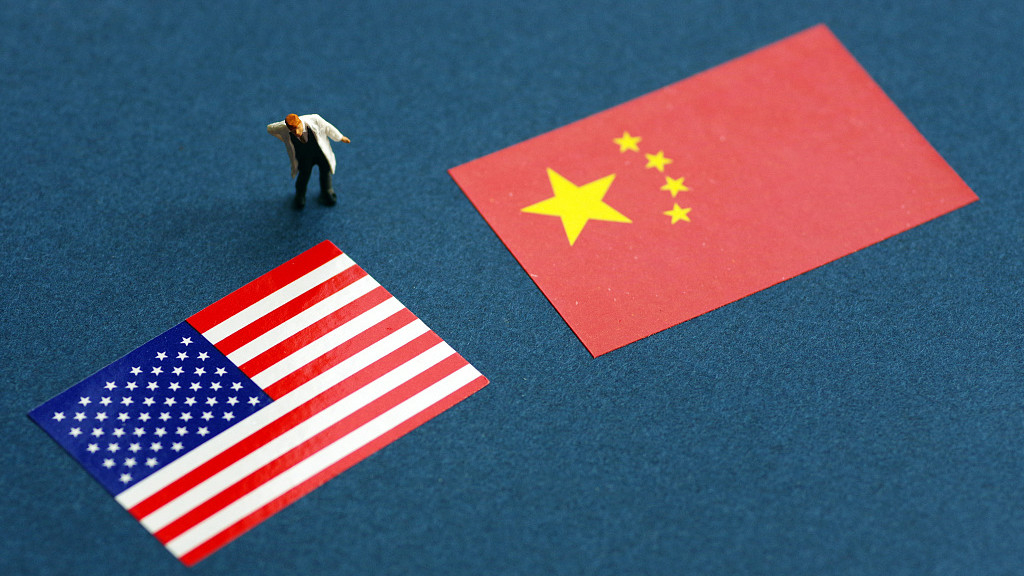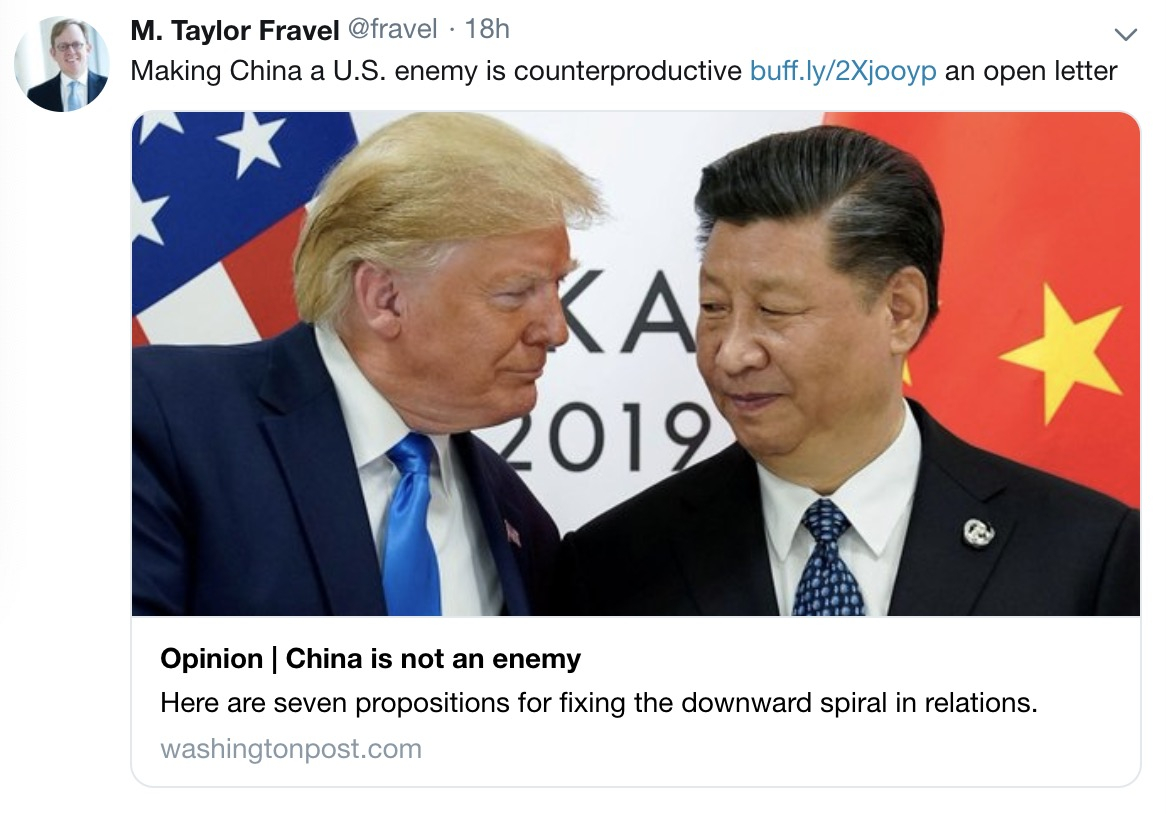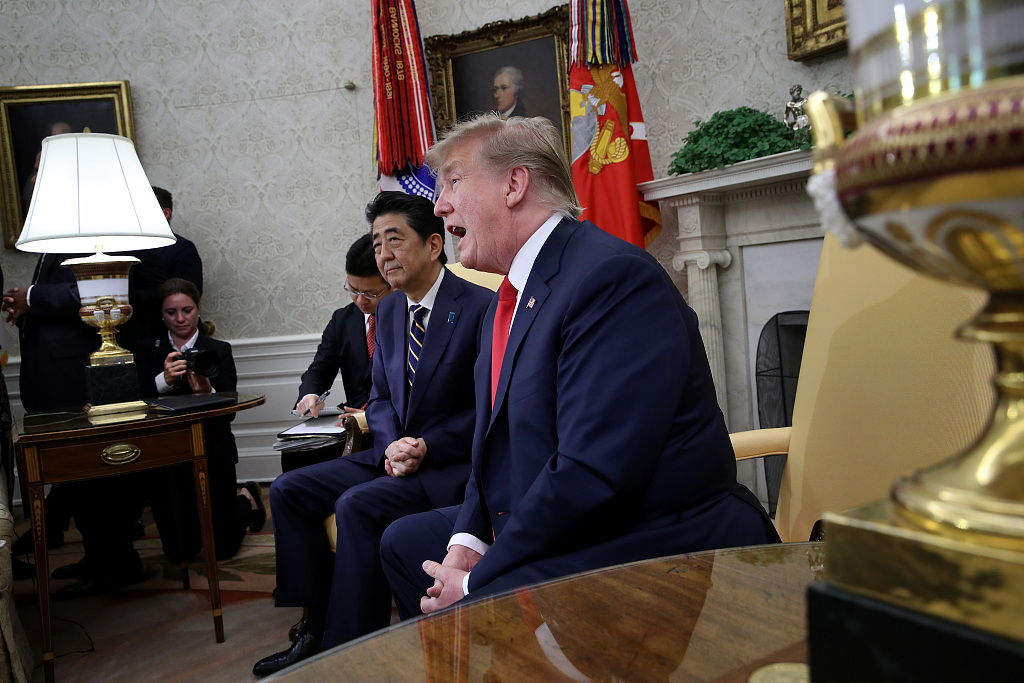

Editor's note: Zhao Yuanzhen is an opinion editor at CGTN Digital. The article reflects the author's opinions, and not necessarily the views of CGTN.
Has America’s China policy gone too far? It seems so.
On July 3, 100 U.S. based experts from academia, foreign policy and business communities, including many who have considerable expertise in China and Asia have sent a strong message to the White House: China is not an enemy. They made their concerns loud and clear by signing an open letter published on Washington Post, claiming that the deteriorating Sino-U.S. relationship “does not serve American or global interests.”
“This represents the deep and intense anxiety that pervades American experts community who truly knows and understands China; that they think the current U.S. policy on China is too aggressive and extreme,” said Wang Yong, a professor at the School of International Studies at the Peking University and a member of the academic committee of the Pangoal Institution based in Beijing.
The group of China experts include Stapleton Roy, former U.S. ambassador to China; Susan A. Thornto, former acting assistant secretary of state for East Asian and Pacific affairs; Ezra Vogel, a professor emeritus at Harvard University and Stephen A. Orlins, president of National Committee on U.S.-China Relations.

M. Taylor Fravel, one of the five authors of the open letter and a professor of political science at MIT, shares the article on his personal Twitter. /Via screenshot
This kind of dialogue between groups who have different policy views on China is badly needed now, as the White House is occupied with China hawks that either seem to have little knowledge about China or have seriously biased opinions. Those who used to have relatively more balanced views on China like former Secretary of Defense James Mattis, and former Secretary of State Rex Tillerson either resigned or were fired by Trump, who are now surrounded by hardliners who advise on how to defeat, rather than cooperate with China.
Thus there has been virtually no policy debate on such a crucial and complicated issue. Containing China has become the correct politics in the White House as rational voices have been seriously marginalized.
In these circumstances, the move taken by these experts can be considered brave and honest as they openly oppose the White House’s ideology on China. They do this because they know what level of damage could occur if China and the U.S. slip into a “new Cold War.”
As Wang points out, in a way, their proposals and suggestions on China also reveal the truth that the hardliners are trying to hide: that the U.S. simply cannot “significantly slow China’s rise without damaging itself.” The current trade war is a classic example of how the trade policy on China is ill-considered: Trump claimed that trade war with China is “easy” to win at the start of the trade stand-off, but the two sides are still at odds with each other on some key issues. And let’s not forget the U.S. is still engaged in a trade war with Japan, over 30 years after the Plaza Accord.

U.S. President Donald Trump meets with Japanese Prime Minister Shinzo Abe in the Oval Office of the White House April 26, 2019 in Washington, DC. /VCG Photo
Also, both Trump and his trade adviser Peter Navarro have shouted that China is paying for the tariffs, not the U.S. public. It was only in May this year that White House economic adviser Larry Kudlow admitted in an interview that the cost will be ultimately transferred to U.S. products for which Americans have to bear the cost.
It is true that the authors of the open letter are speaking from America’s national interest, which is only valid and logical. And they do admit there are challenges ahead and areas where the U.S. could have a tough stance. But the approach to a better and “great” America, as Trump has hoped, is drastically different with those China hawks.
They urged the Trump administration to take a more realistic approach that takes China’s concerns and behaviors into account. And that seems to be the crux here: To treat China and U.S. as a No.1/No.2 game is a risky way to deal with a complicated China itself and the even more complex China-U.S. relations. If the complaints from business communities last month at the hearing on China tariffs have fallen on deaf ears, hopefully this letter could be a start of some meaningful and rational discussions on America’s China policy.
(If you wan to contribute and have specific expertise, please contact us at opinions@cgtn.com.)

Copyright © 2018 CGTN. Beijing ICP prepared NO.16065310-3
Copyright © 2018 CGTN. Beijing ICP prepared NO.16065310-3